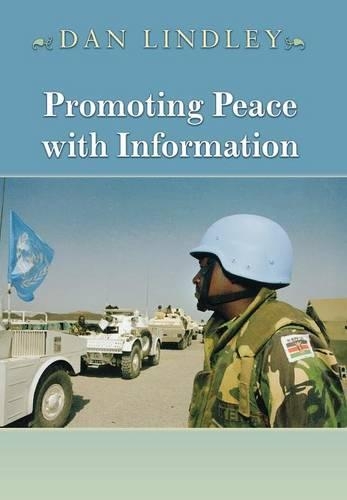
Promoting Peace with Information: Transparency as a Tool of Security Regimes
(Hardback)
Publishing Details
Promoting Peace with Information: Transparency as a Tool of Security Regimes
By (Author) Daniel Lindley
Princeton University Press
Princeton University Press
23rd July 2007
United States
Classifications
Professional and Scholarly
Non Fiction
Peacekeeping operations
327.172
Physical Properties
Hardback
296
Width 152mm, Height 235mm
567g
Description
It is normally assumed that international security regimes such as the United Nations can reduce the risk of war by increasing transparency among adversarial nations. The more adversaries understand each other's intentions and capabilities, the thinking goes, the less likely they are to be led to war by miscalculations and unwarranted fears. But how is transparency provided, how does it actually work, and how effective is it in preserving or restoring peace In Promoting Peace with Information, Dan Lindley provides the first scholarly answer to these important questions. Lindley rigorously examines a wide range of cases, including U.N. peacekeeping operations in Cyprus, the Golan Heights, Namibia, and Cambodia; arms-control agreements, including the Nuclear Non-Proliferation Treaty; and the historical example of the Concert of Europe, which sought to keep the peace following the defeat of Napoleon in 1815. Making nuanced arguments based on extensive use of primary sources, interviews, and field research, Lindley shows when transparency succeeds in promoting peace, and when it fails. His analysis reveals, for example, that it is surprisingly hard for U.N. buffer-zone monitors to increase transparency, yet U. N. nation-building missions have creatively used transparency to refute harmful rumors and foster democracy. For scholars, Promoting Peace with Information is a major advance into the relatively uncharted intersection of institutionalism and security studies. For policymakers, its findings will lead to wiser peacekeeping, public diplomacy, and nation building.
Reviews
"The book is especially impressive in the execution of the research... There is something for many (not quite everyone), and readers will profit by learning about topics that they thought they already knew, as well as other topics that they could stand to learn more about"----Paul F. Diehl, Perspectives on Politics
Author Bio
Dan Lindley is Assistant Professor of Political Science and a Fellow at the Joan Kroc Institute for International Peace Studies at the University of Notre Dame.
